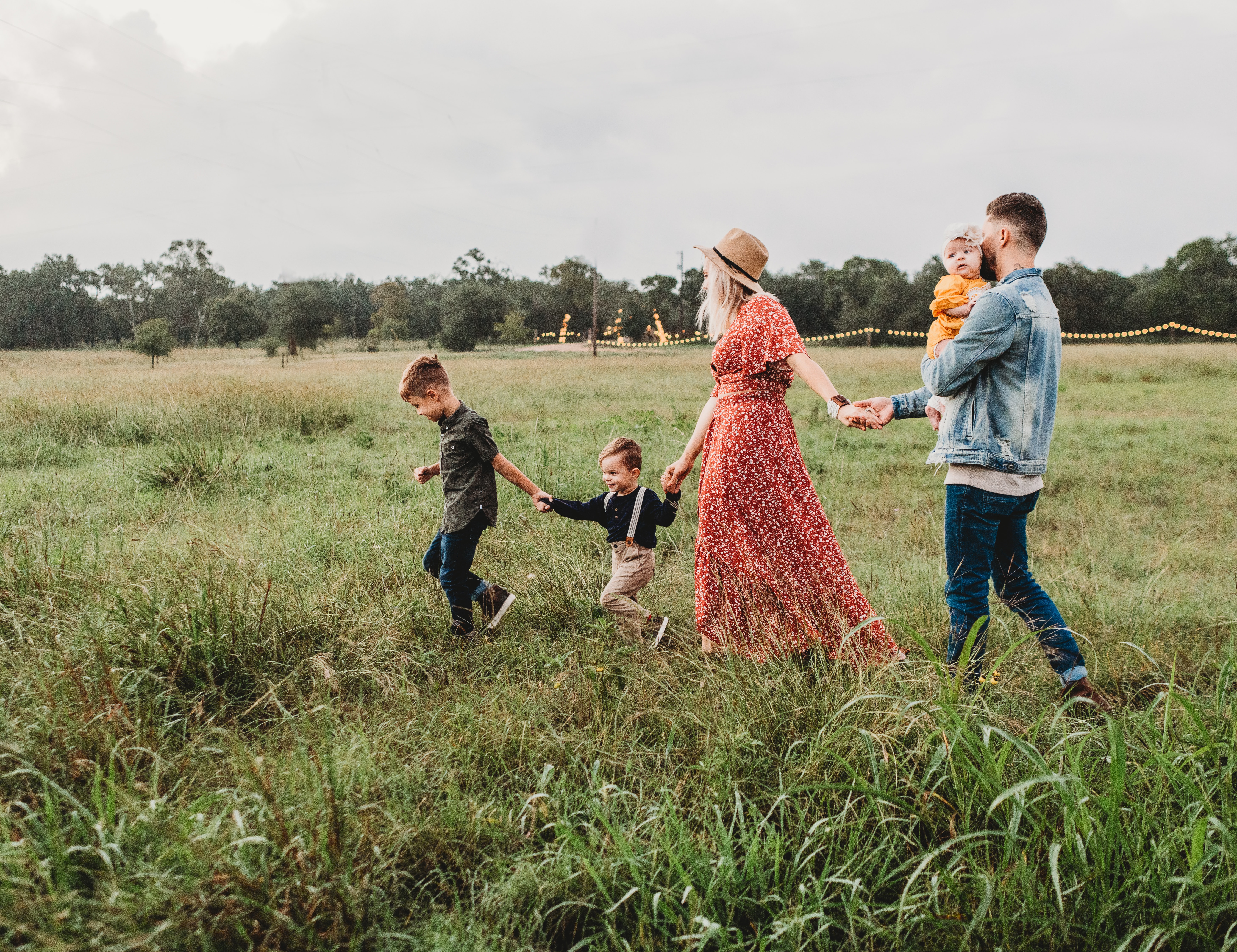For an expectant mother, making an adoption plan for your child is the most difficult decision you may ever make. It is a decision based on so many emotions and with the best interest of your child in mind. Yet it is a decision that expectant mothers will live with for the rest of their lives. And like all parents, birth mothers want their child to grow up in a safe and loving home. This is why you need to consider the pros and cons of placing your child with an adoptive family.
An adoption plan describes the future you want for your child and yourself and details how to best achieve that. In the Adoption.org article How Do I Start an Adoption Plan?, author Melissa Giarrosso explains, “If you’ve found yourself unexpectedly pregnant, you might be more stressed than you’ve ever been before. It’s hard to think under such extreme stress, no matter what options you’re considering — abortion, adoption, or parenting. There’s a lot to think about, and if you’ve decided adoption is the best option you have, you’ll need to do your research and start your adoption plan.”
Like any life-changing decision, you should first research into what adoption will mean for you and your child and consider the adoptive family pros and cons involved.
Just like expectant mothers, no two adoptive families are the same nor do they have the same story or reasons for wanting to adopt.
It’s important to understand that the relationship between expectant parent and adoptive family is unique and the main focus should be on what’s in the child’s best interest. Although there are many considerations when it comes to considering adoption, here are some examples of adoptive family pros and cons.
ADOPTIVE FAMILY PROS
Opportunity to Give a Child a Great Life
Wanting to give your child a great life is something all parents want for their children and one of the main reasons expectant mothers choose to make an adoption plan. Whatever the reason that has brought them to this decision, knowing that their child will be loved, safe, and secure is so important.
Whether an expectant mother is looking for a two-parent or single-parent household, a family with no existing children or one with siblings, a home with or without pets, a house in the suburbs surrounded by extended family, or a loft in the city with lots of places to explore.
The Adoption.org article How to Find An Adoptive Family for My Baby indicates that choosing an adoptive family for your child will seem like an intimidating task. “After all, you’re choosing a permanent home for your baby, and how do you even know which one is the right family for your child?” This article suggests that before an expectant parent starts looking at families, they should decide what they’re looking for first, what kind of adoption is the right one, speak with potential families to go beyond “the profile” and get to the details that matter, listen to your gut — ‘when you know, you’ll just know’ — and do plenty of research.
Peace of Mind
Birth mothers often state that they have peace of mind knowing that their child will be raised by a loving family; one that can provide the important pieces of being a parent that she, at the time, was unable to or maybe would never be able to. Many people view placing a child as a hard but selfish thing to do but, in truth, placing a child is a selfless act of love. Knowing this oftentimes results in finding peace of mind. Becoming a parent is not just about the material things that you can afford, but also your emotional capacity and the resources available to you to ensure that you’re able to be present for a child in all the ways they need and deserve.
In her Adoption.org article How Do I Choose a Family to Adopt My Baby?, writer Leslie Bolin offers birth mothers advice on where to start, how to find families that would like to adopt, and how to know which family is the right one, sharing, “When the adoptive family holds their baby for the first time and their joy lights up the whole room—when you see the gratitude in those eyes and feel the love pouring out from their souls—your heart can rest easy knowing that you have made the right choice.”
Increased Chance for a Birth Mom to Achieve Her Goals
It’s unfair to judge an expectant mother facing an unplanned pregnancy. Everyone faces different circumstances and in some cases, a woman may feel that she is incapable, not ready, or doesn’t have the resources to raise a child.
Adoption allows expectant mothers an opportunity to achieve their goals whether that’s finishing school, pursuing higher education, or following a career path. In some cases, the choice comes down to an inability to care for another child when there are existing siblings.
Possibility to Have Contact With a Birth Child
There are many different types of adoption and you need to speak with your adoption agency, social worker, and potential family to decide on what the best plan is for your situation. The two main options are open or closed adoption.
Most adoptions now are open, meaning that an adopted child will grow up knowing who their birth parents are and have the opportunity to build and maintain a lifelong connection. Open adoption with contact ranging from phone calls, texts, emails, or photo and letter updates to visits on special occasions and other times as worked out between the adoptive family and birth mother.
Open adoption also enables an expectant parent to talk with the adoptive family during the pregnancy.
An alternative to open adoption is semi-open adoption, which often involves limited contact like phone calls, texts, and emails, the potential to meet ahead of the birth of the baby, and the possibility of limited contact after placement.
With a closed adoption, there is absolutely no contact between the birth mother and adoptive family. The birth mother’s information is kept private and any information shared between the birth parent and adoptive family goes through an adoption agency or attorney until the adopted child reaches legal age.
Legal age (typically 18-21) is defined differently from state to state. Some states allow records to be opened and contact can be made between a birth parent and their biological child.
The Adoption.org article What is the Difference Between an Open and Closed Adoption? walks you through the pros and cons of the types of adoption and what it means for all parties involved.
ADOPTIVE FAMILY CONS
The effects of placing a child for adoption last a lifetime and the decision is not made easily by an expectant parent. Wondering whether you’ve made the best plan for yourself and your child during such a confusing time in your life can feel overwhelming. The unknown and the flood of emotions that follow after placing a child for adoption can be difficult to process while trying to find a sense of peace with their adoption decision.
Feelings of Loss and Grief
It is understandable and normal for a birth mother to grieve the loss of a child she has placed for adoption immediately following the decision and years later. Learning to manage grief is not a one-and-done event and can quickly consume you if left unchecked.
The healing journey in adoption is lifelong as described in the Adoption.org article Will I Ever Feel Better about My Adoption Decision? “Just as with other loss and grief, the feelings come and go. Some days, you can cope in a healthy and productive way. Other days, you may find it hard to cope, and may even feel unable to process your feelings adequately. This is completely normal.” Some suggestions for working through tough emotions include seeking out a support group or therapist or reaching out to others who once walked similar paths.
Acknowledging feelings of loss and grief and knowing how to navigate these feelings is an important first step in finding peace with one of the hardest decisions a parent may ever have to make. The harsh reality of having placed a child with an adoptive family is only countered by the fact of knowing that the child is safe and happy because of the sacrifice that has been made on their behalf.
Relinquishing Legal Rights to the Child Once the Adoption is Finalized
Once a birth mother has relinquished her parental rights, she no longer has a say in her child’s upbringing whether or not she agrees with the adoptive family’s plans and decisions on behalf of the child.
And while placing a child for adoption might have felt like the right choice at one point, changes in the agreed-upon adoption plan or personal changes in their feelings about the decision they have made might cause a birth mother to ask a lot of “what if’s.”
Expectant parents should thoroughly research and know their rights before deciding on an adoption plan. The Adoption.org article What Are Birth Mother Rights After Adoption suggests working with a lawyer or agency who can fully explain your rights both during and after the adoption and shares the following advice: “If you are respected and heard by the agency and the adoptive family, you can be more comfortable entering into an open adoption. Forming a relationship with the adoptive family helps you trust that you will know how your child is doing.”
Regretting the Decision to Place a Child for Adoption
Most women who choose an adoption plan for their child are at a difficult point in their lives whether it’s emotionally, mentally, financially, or something else. In some cases, a birth mother feels torn between trying to take care of other children already in her care and wondering how she can provide for another child with little to no resources.
Some birth mothers experience regret later on when they find themselves more stable and in a better position in life. It’s easy to see how self-doubt can creep up, causing confusion, resentment, and even anger wondering whether or not they could’ve made things work. And wondering whether or not the child they placed resents them for their decision.
Others may question their decision between their plan for open or closed adoption and may wish they’d made a different decision. Both open and closed adoptions come with challenges as life continues to move forward and situations change. Open adoption is a lifelong commitment requiring both parties to put in the effort and offer the other party the respect they deserve. However, it’s been shown that open adoption, despite its challenges, is beneficial both to expectant parents and adoptive families.
Chance of Causing Stress With Biological Family Members Who Disagree With Your Decision
Just because an expectant parent is confident in their decision to place a child with an adoptive family doesn’t mean the rest of their family will feel the same way. The child may also have grandparents, aunts, uncles, cousins, siblings, and others who may feel strongly against the idea of placing a child for adoption.
Ultimately, the decision is that of the birth parent and not the extended family. This is hard to process at such a stressful time and it’s important to be fully committed and realize that extended family members need time to process your decision whether or not they agree or fully understand. Keep the best interest of the child at the forefront.
While many adoptive children grow into well-adjusted adults who are comfortable with their biological parents’ decisions, some grow up feeling angry or upset about the fact they were placed for adoption. The hope is that the adoptive family chooses to use positive adoption language and helps their child to work through their many complex emotions throughout their lifetime. It is important for adoptive children to have the opportunity to find peace with these big decisions that have been made for them.
FINDING SUPPORT SERVICES
It’s important for expectant parents to weigh all of the adoptive family pros and cons before making an adoption plan and to seek out professional counseling from trained specialists who can offer education, insight, and resources ahead of, throughout, and even after the adoption placement.
If you’re considering adoption, the Gladney Center for Adoption offers support. This support includes choosing a loving family to adopt your child, choosing the life you want for your child, how to have a relationship with your child after adoption, medical and financial support, assurance of finding peace of mind knowing your child is safe and loved, free counseling, support from other birth moms with similar situations, and lifetime post-adoption support.




